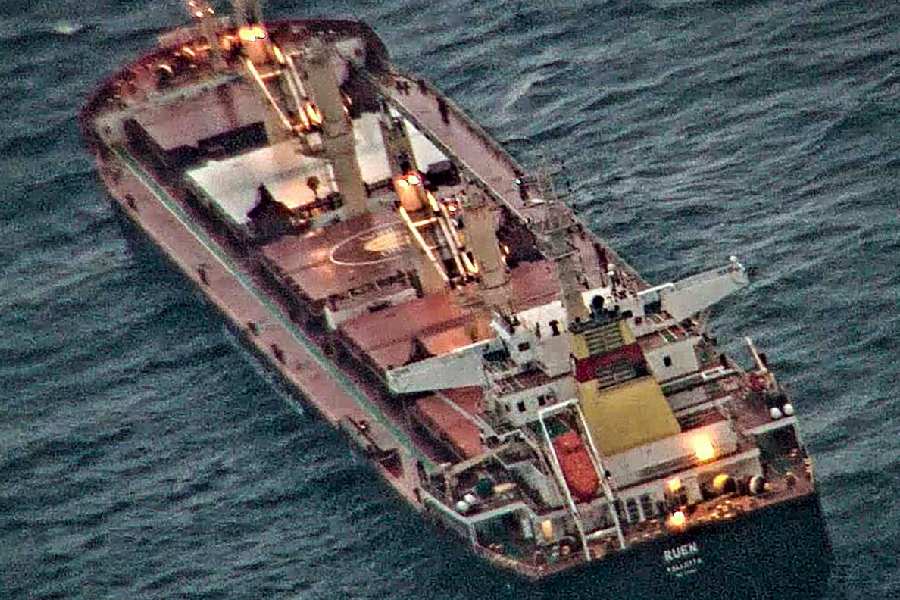In the midst of the Red Sea shipping crisis, the Houthi rebels unleash an unprecedented attack

10th January 2024
Houthis Complex Attack
The Houthi rebels have launched their most massive weapons barrage to date, causing alarm about the safety of maritime traffic in the area and a startling escalation of the ongoing Red Sea shipping crisis. The United Kingdom Maritime Trade Operations (UKMTO) organization received a detailed report on the situation, revealing the gravity of the attack and its potential ramifications.
The attack occurred on the evening of January 9, when Houthi rebels targeted multiple vessels transiting the strategically vital Red Sea. According to the UKMTO, Several missiles and drones were fired, marking a significant increase in the scale and intensity of Houthi hostilities in the region.
With Iranian-designed one-way attack unmanned aerial vehicles (OWA UAVs), anti-ship cruise missiles, and anti-ship ballistic missile, the Iranian-backed Houthis launched a advanced assault attack on January 9 from Houthi-controlled areas of Yemen into the Southern Red Sea, towards international shipping lanes where dozens of merchant vessels were transiting.
The UKMTO report specifies that the targets included both commercial and military vessels. Among the affected ships were oil tankers, cargo vessels, and naval assets from various nations navigating the crucial waterway. The attack raises concerns not only for the safety of international shipping but also for the potential environmental impact should any of the targeted vessels be carrying hazardous cargo.
A combination of F/A-18s from USS Dwight D. Eisenhower (CVN 69), USS Gravely (DDG 107), USS Laboon (DDG 58), USS Mason (DDG 87), and the United Kingdom’s HMS Diamond (D34) shot down eighteen OWA UAVs, two anti-ship cruise missiles, and one anti-ship ballistic missile.
The Red Sea shipping crisis has been a persistent concern for the international community, with Houthi rebels frequently targeting vessels passing through the Bab el-Mandeb strait—a narrow chokepoint connecting the Red Sea to the Gulf of Aden. The strategic importance of this waterway cannot be overstated, as it is a key route for global trade, with millions of barrels of oil passing through daily.
According to an investigation conducted by UK consultancy Maritime Strategies International (MSI), rerouting vessels via the Cape of Good Hope clearly takes longer and uses more fuel per unit of commodity transported than via the Suez Canal, but the costs associated with environmental regulations illustrate the perverse incentives in moves.
The incident comes at a time of heightened tensions in the Middle East, with various conflicts and geopolitical rivalries adding complexity to an already volatile situation. The international community now faces the urgent task of addressing this latest development in the Red Sea shipping crisis and preventing further escalation that could have far-reaching consequences for global trade and security.
Stakeholders are hoping for a prompt and efficient resolution to the current crisis and are anxiously awaiting updates from the UKMTO and other relevant authorities as the situation develops. Earlier a point of flawless maritime navigation, the Red Sea is currently the center of geopolitical tensions.
Click here to join our Telegram chanel
You will get information, news, and support related to Merchant Navy.
